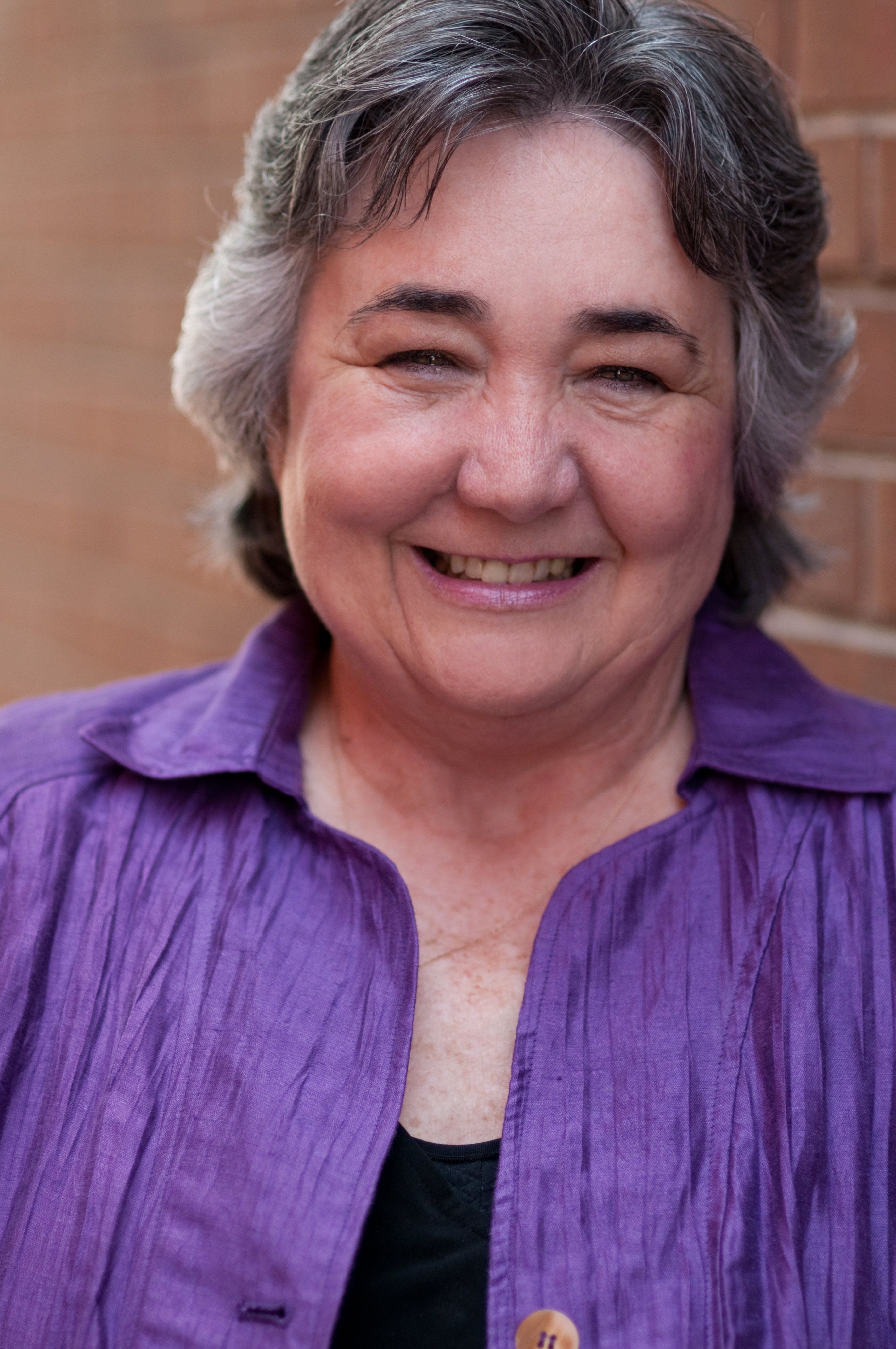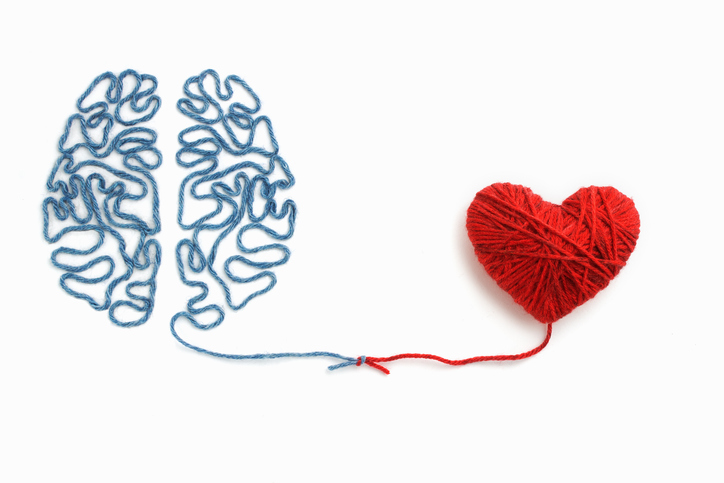The difference between thoughts and feelings and how we work with them, or more to the point, how they work on us, is really important—really, really, really important, …. Really it is!
Lest the reader think I have abandoned all rules of proper communication—or that I am indulging in hyperbole above and beyond what is called for, let me clarify more calmly:
Our thoughts and feelings have different roles and purposes in how we experience reality. Our right understanding and proper cooperation with these roles and purposes will positively impact our relationships and even our view of ourselves and the world.
My mom seemed to instinctively know the importance of this concept. She taught her children to think. I am mostly grateful for my mother’s insistence on clear communication. She brought us up to know quite clearly that thinking and feeling about whatever might be happening in our lives were two sides of a coin but to be allowed different weights in influencing conclusions and actions taken.
I remember my fifteen-year-old self-telling my mother, as she arrived home from work, that “I have to do everything around here!” (This unfortunate timing and opening to a conversation are not recommended. But, … that’s what I said.)
I will skip the part of our conversation that made us both miserable…
and jump right into the helpful part that is seared in my memory:
Me: “Nobody ever cleans the kitchen but me.”
Mom: “Really? Nobody? Ever?”
Me: “That’s what it feels like.”
Mom: “Well, your feelings are lying to you.”
Me: “Huh?”
Mom: “Just because you feel it, doesn’t make it true. Your sister did the dishes yesterday. I mopped the floor last night.”
Me: “I don’t have enough time to do all my chores with working and going to school.”
Mom: “Finally! Something we can work with – facts. Let’s see what we can do.”
As I read over the dialogue, I know it isn’t word perfect. But it contains the gist of the point I want to make. My mom is the first one I remember telling me to think about my feelings before coming to conclusions and especially before taking action. Our conversation went on to considering my work and school schedule and rearranging some of my chores to a more reasonable time. I still thought I shouldn’t have to do any chores until my mom pointed out that if that was the case, since she also worked, that she shouldn’t have to do what she does at home. Previous bouts of verbal sparring with my mother led me to drop the conversation at that point.
It was over a decade later that I was introduced to a Christian viewpoint on thoughts and feelings. It was good news to me that the Bible spoke clearly about the way our minds and hearts work. This happened during a conference in which Gary Sweeten from College Hill Presbyterian Church in Cincinnati, Ohio presented a workshop. In his book, Rational Christian Thinking: Renewing the Mind[i] Sweeten presented a biblical background and theoretical underpinnings for thinking the way we were designed to think. My takeaway from his teaching was that there is a way to slow down a process that seems automatic to us. In the rapid-fire process of experiencing our thoughts and emotions—we can slow the process down in order to understand it. And, hopefully, when we understand it, we can use the tools to help us think through and manage ourselves and our journey better.
We live in a fallen world which has skewed the truth on every front – our thinking has been formed in this context. Here are scriptural principles for the process of the renewal of our minds:
- The god of this age has blinded the minds . . . . . of unbelievers, so that they cannot see the light of the gospel of the glory of Christ, who is the image of God. (2Co 4:4)
- They are darkened in their understanding and separated from the life of God because of the ignorance that is in them due to the hardening of their hearts. (Eph 4:18)
- Scripture (which is written on our hearts and is constantly whispering to us as well), admonishes us: So, I tell you this, and insist on it in the Lord, that you must no longer live as the Gentiles do, in the futility of their thinking. (Eph 4:17)
- I pray also that the eyes of your heart may be enlightened in order that you may know the hope to which he has called you, the riches of his glorious inheritance in the saints, ( Eph 1:18)
- to be made new in the attitude of your minds; (Eph 4:23)
- Do not conform any longer to the pattern of this world but be transformed by the renewing of your mind. Then you will be able to test and approve what God’s will is— his good, pleasing and perfect will. (Romans 12:2)
- And a word about our emotions–the appropriate first receptacle for our emotions, our yearnings, our heart aches is into the waiting heart of our Lord: “Cast all your anxiety on him because he cares for you. Be alert and of sober mind. Your enemy the devil prowls around like a roaring lion looking for someone to devour. Resist him, standing firm in the faith, because you know that the family of believers throughout the world is undergoing the same kind of sufferings. And the God of all grace, who called you to his eternal glory in Christ, after you have suffered a little while, will himself restore you and make you strong, firm and steadfast. To him be the power for ever and ever. Amen. (1 Peter 5:7-11)
Rational Christian Thinking (RCT, is simple in its message: it is important to slow down, to take some time to sort out our thinking/emoting process. Sweeten’s thoughts on how to do that are well worth studying.
If you want to know more about the theory and resources to learn more about or teach RCT, see the link below. If you want to read more about what I think about or use the process in my own life. . . drop me a line at info@wheregraceabounds.org. Would love to share more.
In any case, pay attention to the point here:
The difference between thoughts and feelings and how we work with them, or more to the point, how they work on us, is really important—really, really, really important, …. Really it is!

Mary Heathman
Founding Director
Mary often characterizes herself as “a seeker of Truth” and has a long-standing fascination with human behavior and motivation. Her education consists of lay and discipleship counseling, independent study about the integration of psychology and theology, counseling and human sexuality. She also holds a BS in Human Services and an MA in Psychology from Regis University.
Mary attends a Friends (Quaker) Church.
Make a Difference in Someone's Life
If you enjoy reading WGA’s blogs and would like to show your support, please consider making a donation. Where Grace Abounds is a 501(c)3 non-profit organization. The majority of services, including support groups and discipleship counseling, are provided free of charge. Your financial gifts help to cover the costs associated with offering a free program to those who seek WGA’s services.

